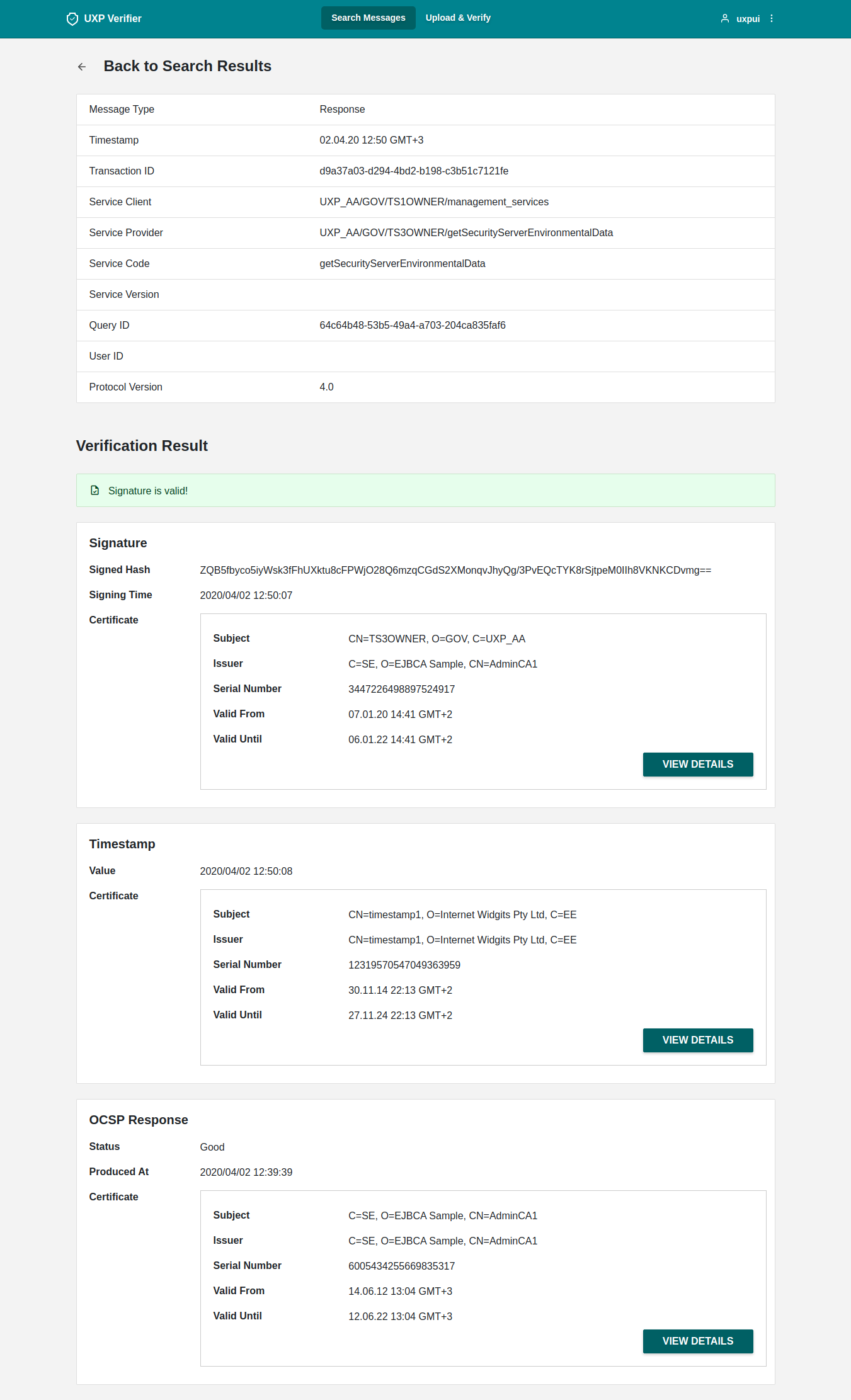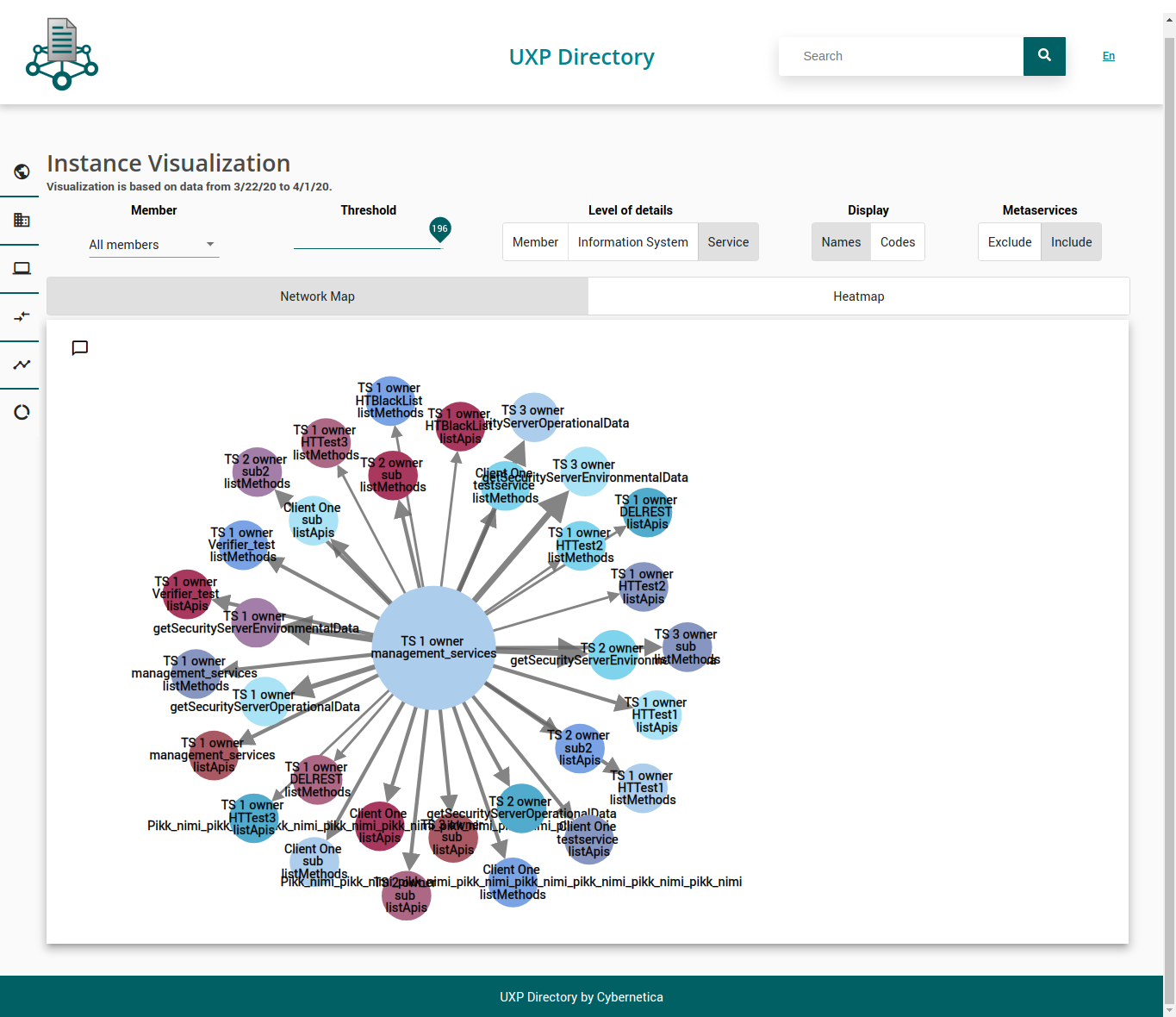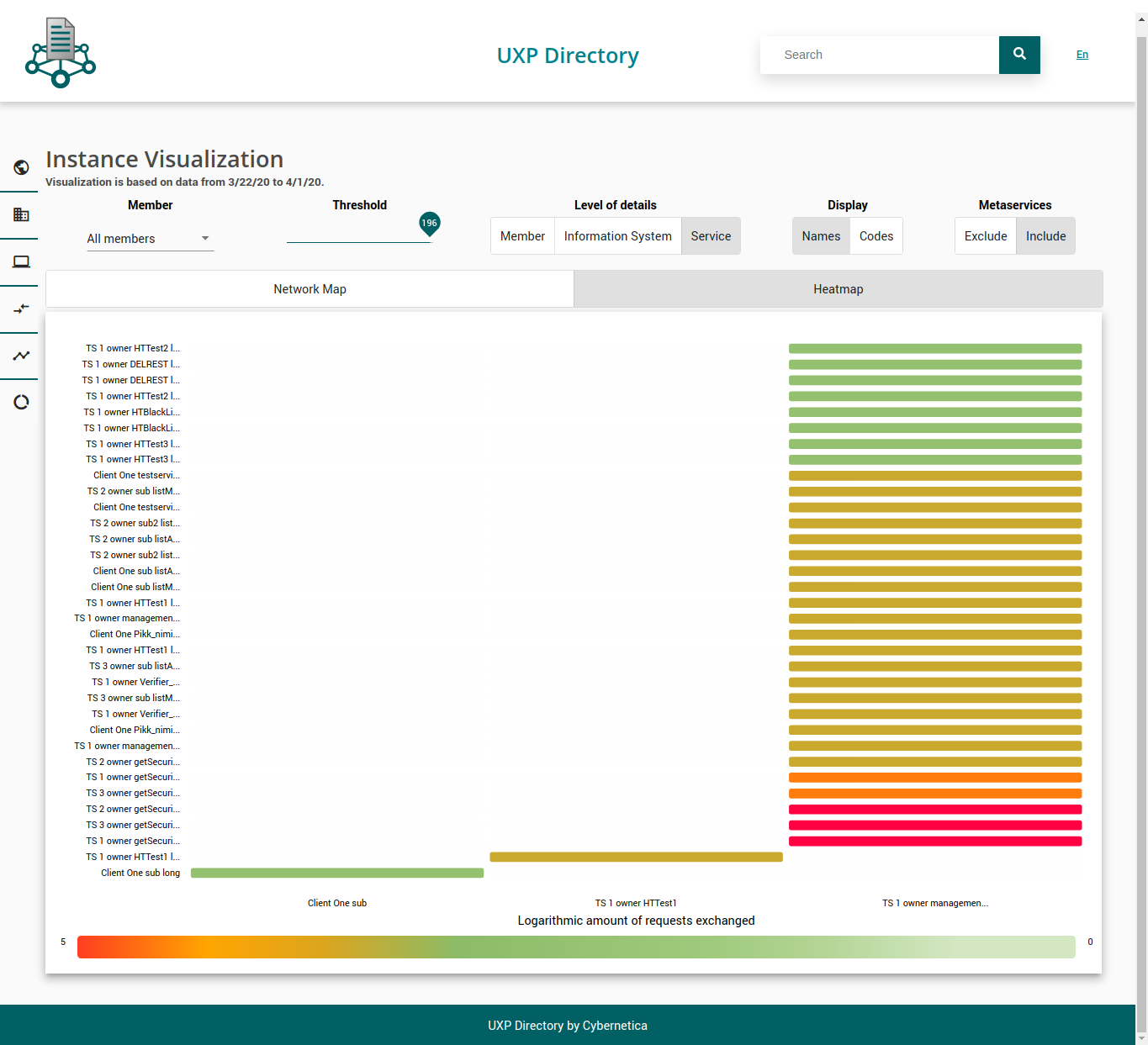At the end of February, the UXP team released new versions of several of our products. The main changes are described below.
UXP Core 1.12
The main functional addition to UXP Core is UXP Verifier. The Verifier is a web UI that can be used to browse the contents of the Security Server’s message log and download and verify signed messages. Although the Verifier mainly works on the message logs stored in the Security Server, it also supports uploading and verification of a previously archived signature container.

Together with Verifier, we introduced couple of smaller technical changes to the message log.
- The API for downloading signed containers (ASiC) now requires the use of HTTPS protocol to prevent a potential confidentiality breach.
- There is a new HTTP header Uxp-Transaction-ID. This header is automatically generated by the Security Server to contain a unique value for every message. The transaction ID is also saved to the message log and can be used to uniquely identify UXP messages.
- There is a new configuration option to disable saving the technical messages (monitoring and metainfo services) to the message log. This can help to save disk space if there is no need create proof value for exchanges that do not involve business data.
In addition to the Verifier, there are several technical changes in UXP Core 1.12.
- Java Runtime Environment is upgraded to version 11. The other third-party libraries and components are upgraded as well to ensure security and good performance of the system.
- Ubuntu 18.04 is now the oldest supported platform.
- For local monitoring, version 7.x of Elasticsearch and Kibana tools is now supported. Additionally, Elascticsearch clusters are now supported for improved availability.
- The old Request Statistics Document (the old format for UXP statistics) is no longer supported in local monitoring.
UXP Directory 2.1
The major new functionality for the UXP Directory version 2.1 is the possibility to visualize the data exchanges between organizations. It is possible to see at a glance who is talking to who, using either a graph or a heat map.


In order to dig into more detail, it is now possible to download subset of the statistical information gathered by UXP Monitoring as open data. With this data, researchers and other data analysts can discover trends in the UXP usage.
In addition, the new version introduces the following technical changes.
- Java Runtime Environment was upgraded to version 11.
- The UXP Directory can now be installed in a cluster.
- It is now possible to customize the user interface.
UXP Monitoring 2.2
UXP Monitoring is mostly a maintenance release with the changes being technical in nature.
- Version 7.x of Elasticsearch and Kibana tools is now supported. Additionally, Elascticsearch clusters are now supported for improved availability.
- Java Runtime Environment is upgraded to version 11. The other third-party libraries and components are upgraded as well to ensure security and good performance of the system.
- Monitoring servers can now be installed in clusters.
- Added email notification support. The Monitoring Server can now send e-mail when collecting monitoring data from security servers fails.
- Ubuntu 18.04 LTS is now the oldest supported platform.